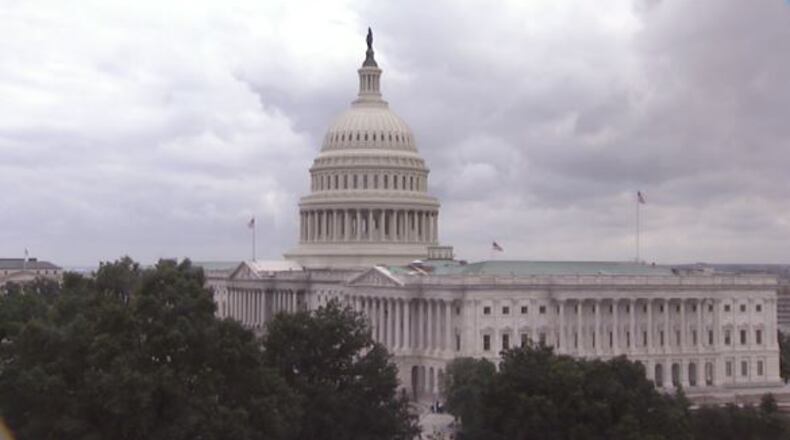For the seventh time in less than a year, the Congress has sent President Donald Trump a short-term extension of the federal flood insurance program, as lawmakers continue to search for a bipartisan legislative fix to a program that is already in over $20 billion in the red.
"Congress has got to start doing things differently," said Sen. David Perdue (R-GA). "The current program is unsustainable, and taxpayers deserve better."
The Senate voted 86-12 on Tuesday for a four-month extension of the National Flood Insurance Program, as the White House has urged Congress to agree on major financial reforms.
"As currently structured, the NFIP cannot handle catastrophic losses like those caused by the devastating hurricanes in 2017," the White House said last week.
The lack of a deal on federal flood insurance is simple to explain - there's no agreement on how best to improve the program, no consensus on how much of a private market to create, and strong resistance from coastal areas to the idea of large increases for homeowners in flood insurance premiums to pay for the program.
"The NFIP is broke, outdated, and in need of critical reforms," said Rep. Dennis Ross (R-FL), who wants to see more private flood insurance, and competition, as part of the answer.
"Today, we are in the middle of Hurricane season and the NFIP still owes over $20 billion to the U.S. Treasury," Ross added, as lawmakers reminded each other that Congress forgave another $16 billion in debt last year.
"The National Flood Insurance Program is in desperate need of changes." said Sen. Marco Rubio, as both the House and Senate have different plans on what needs to be changed - but no agreement on how to forge a bipartisan compromise.
Maybe the biggest single stumbling block is a familiar one - how to fund the federal flood insurance program without setting higher premiums that residents of flood-prone communities cannot support.
"People have been living near the water since Moby Dick was a minnow," said Sen. John Kennedy (R-LA). "Few of them are living in luxury beach homes."
The deal approved today will extend the flood insurance program through the end of the current hurricane season - but there's no guarantee any deal will be reached by the end of November, and it wouldn't be a surprise to see another short-term extension of the program.
One reason is that with the elections in November, the House has only 27 scheduled legislative work days - during seven work weeks - over the next four months.
About the Author
The Latest
Featured



